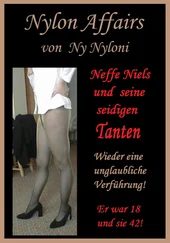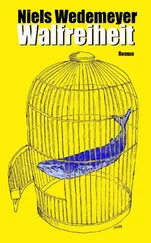J. P. Jacobsen - Niels Lyhne
Здесь есть возможность читать онлайн «J. P. Jacobsen - Niels Lyhne» — ознакомительный отрывок электронной книги совершенно бесплатно, а после прочтения отрывка купить полную версию. В некоторых случаях можно слушать аудио, скачать через торрент в формате fb2 и присутствует краткое содержание. Жанр: unrecognised, на английском языке. Описание произведения, (предисловие) а так же отзывы посетителей доступны на портале библиотеки ЛибКат.
- Название:Niels Lyhne
- Автор:
- Жанр:
- Год:неизвестен
- ISBN:нет данных
- Рейтинг книги:4 / 5. Голосов: 1
-
Избранное:Добавить в избранное
- Отзывы:
-
Ваша оценка:
- 80
- 1
- 2
- 3
- 4
- 5
Niels Lyhne: краткое содержание, описание и аннотация
Предлагаем к чтению аннотацию, описание, краткое содержание или предисловие (зависит от того, что написал сам автор книги «Niels Lyhne»). Если вы не нашли необходимую информацию о книге — напишите в комментариях, мы постараемся отыскать её.
Niels Lyhne — читать онлайн ознакомительный отрывок
Ниже представлен текст книги, разбитый по страницам. Система сохранения места последней прочитанной страницы, позволяет с удобством читать онлайн бесплатно книгу «Niels Lyhne», без необходимости каждый раз заново искать на чём Вы остановились. Поставьте закладку, и сможете в любой момент перейти на страницу, на которой закончили чтение.
Интервал:
Закладка:
J. P. Jacobsen
Niels Lyhne
A Coming Of Age
e-artnow, 2020
Contact: info@e-artnow.org
EAN: 4064066057527
Table of Contents
Chapter I
Chapter II
Chapter III
Chapter IV
Chapter V
Chapter VI
Chapter VII
Chapter VIII
Chapter IX
Chapter X
Chapter XI
Chapter XII
Chapter XIII
Chapter XIV
CHAPTER I
Table of Contents
She had the black, luminous eyes of the Blid family with delicate, straight eyebrows; she had their boldly shaped nose, their strong chin, and full lips. The curious line of mingled pain and sensuousness about the corners of her mouth was likewise an inheritance from them, and so were the restless movements of her head; but her cheek was pale; her hair was soft as silk, and was wound smoothly around her head.
Not so the Blids; their coloring was of roses and bronze. Their hair was rough and curly, heavy as a mane, and their full, deep, resonant voices bore out the tales told of their forefathers, whose noisy hunting-parties, solemn morning prayers, and thousand and one amorous adventures were matters of family tradition.
Her voice was languid and colorless. I am describing her as she was at seventeen. A few years later, after she had been married, her voice gained fullness, her cheek took on a fresher tint, and her eye lost some of its lustre, but seemed even larger and more intensely black.
At seventeen she did not at all resemble her brothers and sisters; nor was there any great intimacy between herself and her parents. The Blid family were practical folk who accepted things as they were; they did their work, slept their sleep, and never thought of demanding any diversions beyond the harvest home and three or four Christmas parties. They never passed through any religious experiences, but they would no more have dreamed of not rendering unto God what was God’s than they would have neglected to pay their taxes. Therefore they said their evening prayers, went to church at Easter and Whitsun, sang their hymns on Christmas Eve, and partook of the Lord’s Supper twice a year. They had no particular thirst for knowledge. As for their love of beauty, they were by no means insensible to the charm of little sentimental ditties, and when summer came with thick, luscious grass in the meadows and grain sprouting in broad fields, they would sometimes say to one another that this was a fine time for travelling about the country, but their natures had nothing of the poetic; beauty never stirred any raptures in them, and they were never visited by vague longings or day-dreams.
Bartholine was not of their kind. She had no interest in the affairs of the fields and the stables, no taste for the dairy and the kitchen—none whatever.
She loved poetry.
She lived on poems, dreamed poems, and put her faith in them above everything else in the world. Parents, sisters and brothers, neighbors and friends—none of them ever said a word that was worth listening to. Their thoughts never rose above their land and their business; their eyes never sought anything beyond the conditions and affairs that were right before them.
But the poems! They teemed with new ideas and profound truths about life in the great outside world, where grief was black, and joy was red; they glowed with images, foamed and sparkled with rhythm and rhyme. They were all about young girls, and the girls were noble and beautiful—how noble and beautiful they never knew themselves. Their hearts and their love meant more than the wealth of all the earth; men bore them up in their hands, lifted them high in the sunshine of joy, honored and worshipped them, and were delighted to share with them their thoughts and plans, their triumphs and renown. They would even say that these same fortunate girls had inspired all the plans and achieved all the triumphs.
Why might not she herself be such a girl? They were thus and so—and they never knew it themselves. How was she to know what she really was? And the poets all said very plainly that this was life, and that it was not life to sit and sew, work about the house, and make stupid calls.
When all this was sifted down, it meant little beyond a slightly morbid desire to realize herself, a longing to find herself, which she had in common with many other young girls with talents a little above the ordinary. It was only a pity that there was not in her circle a single individual of sufficient distinction to give her the measure of her own powers. There was not even a kindred nature. So she came to look upon herself as something wonderful, unique, a sort of exotic plant that had grown in these ungentle climes and had barely strength enough to unfold its leaves; though in more genial warmth, under a more powerful sun, it might have shot up, straight and tall, with a gloriously rich and brilliant bloom. Such was the image of her real self that she carried in her mind. She dreamed a thousand dreams of those sunlit regions and was consumed with longing for this other and richer self, forgetting—what is so easily forgotten—that even the fairest dreams and the deepest longings do not add an inch to the stature of the human soul.
One fine day a suitor came to her.
Young Lyhne of Lönborggaard was the man, and he was the last male scion of a family whose members had for three generations been among the most distinguished people in the county. As burgomasters, revenue-collectors, or royal commissioners, often rewarded with the title of councillor of justice, the Lyhnes in their maturer years had served king and country with diligence and honor. In their younger days they had travelled in France and Germany, and these trips, carefully planned and carried out with great thoroughness, had enriched their receptive minds with all the scenes of beauty and the knowledge of life that foreign lands had to offer. Nor were these years of travel pushed into the background, after their return, as mere reminiscences, like the memory of a feast after the last candle has burned down and the last note of music has died away. No, life in their homes was built on these years; the tastes awakened in this manner were not allowed to languish, but were nourished and developed by every means at their command. Rare copper plates, costly bronzes, German poetry, French juridical works, and French philosophy were every-day matters and common topics in the Lyhne households.
Their bearing had an old-fashioned ease, a courtly graciousness, which contrasted oddly with the heavy majesty and awkward pomposity of the other county families. Their speech was well rounded, delicately precise, a little marred, perhaps, by rhetorical affectation, yet it somehow went well with those large, broad figures with their domelike foreheads, their bushy hair growing far back on their temples, their calm, smiling eyes, and slightly aquiline noses. The lower part of the face was too heavy, however, the mouth too wide, and the lips much too full.
Young Lyhne showed all these physical traits, but more faintly, and, in the same manner, the family intelligence seemed to have grown weary in him. None of the mental problems or finer artistic enjoyments that he encountered stirred him to any zeal or desire whatsoever. He had simply striven with them in a painstaking effort which was never brightened by joy in feeling his own powers unfold or pride in finding them adequate. Mere satisfaction in a task accomplished was the only reward that came to him.
His estate, Lönborggaard, had been left him by an uncle who had recently died, and he had returned from the traditional trip abroad in order to take over the management. As the Blid family were the nearest neighbors of his own rank, and his uncle had been intimate with them, he called, met Bartholine, and fell in love with her.
Читать дальшеИнтервал:
Закладка:
Похожие книги на «Niels Lyhne»
Представляем Вашему вниманию похожие книги на «Niels Lyhne» списком для выбора. Мы отобрали схожую по названию и смыслу литературу в надежде предоставить читателям больше вариантов отыскать новые, интересные, ещё непрочитанные произведения.
Обсуждение, отзывы о книге «Niels Lyhne» и просто собственные мнения читателей. Оставьте ваши комментарии, напишите, что Вы думаете о произведении, его смысле или главных героях. Укажите что конкретно понравилось, а что нет, и почему Вы так считаете.












